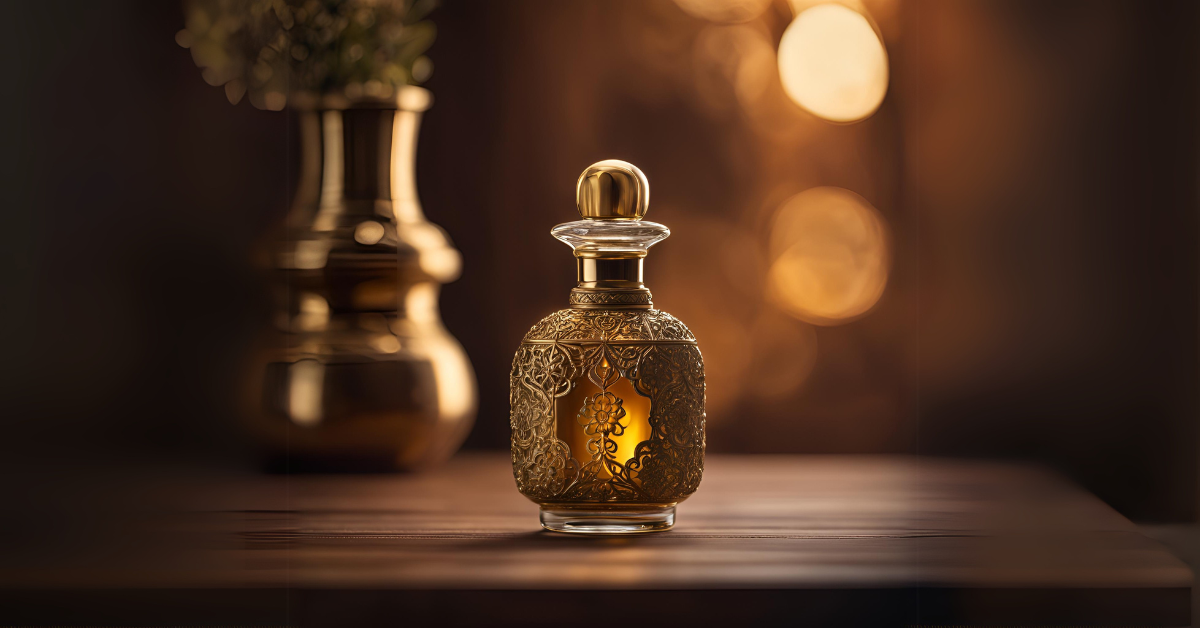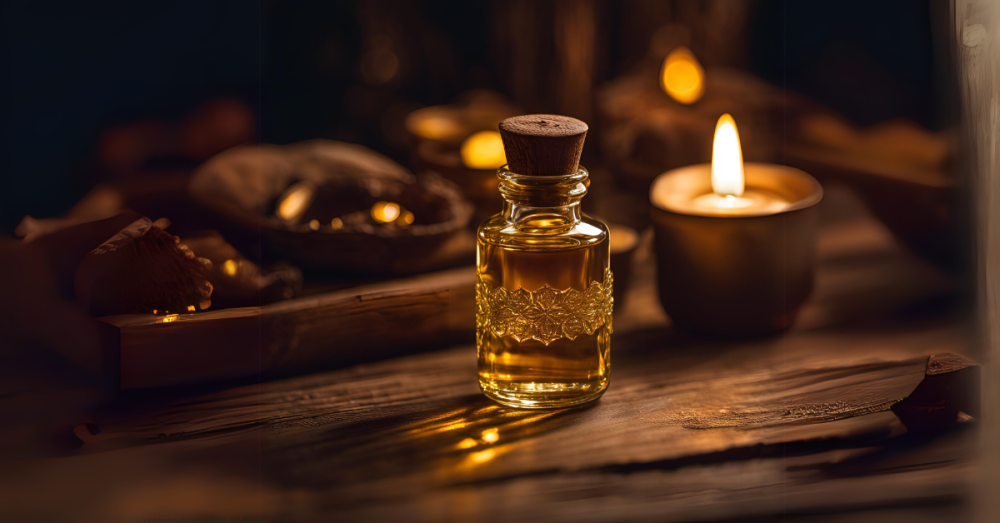Oud oil is one of the rarest and most luxurious natural perfumes that the Arab world has come to love and has become a symbol of authenticity and luxury. With its unique scent and high durability, it goes beyond being just a perfume to become a sensory experience that reflects the depth and richness of the Eastern heritage. In this article, we will delve into the world of oud oil, exploring its history, sources, extraction methods, benefits, uses, and the secrets of choosing the original type.
What is oud oil?
Oud oil is an aromatic oil extracted from the wood of the Aquilaria tree, which grows in specific areas of Asia such as India, Indonesia, Cambodia, and Malaysia. The tree is exposed to a fungal infection that leads to the production of an aromatic resin within its fibers, from which oud oil is extracted after complex processes that require expertise and precision.
Why is oud oil considered rare?
- Scarcity of the agarwood tree : The agarwood tree is considered endangered in some areas due to high demand.
- Long production process : It takes many years for the resin to form in the tree.
- Complex extraction techniques : Oud oil is extracted using special distillation techniques to maintain its purity and quality.
Types of oud oil
Oud oil varies based on its source and method of extraction. The most famous types are:
- Indian Oud Oil: It is characterized by its strong and penetrating scent with a warm touch, and is considered one of the classic types that suit connoisseurs.
- Cambodian Oud Oil: It has a sweet and attractive scent with complex layers of fragrance that make it suitable for use on special occasions.
- Laotian Oud Oil: It is considered one of the most luxurious types due to its rarity and deep, warm scent.
- Malaysian Oud Oil: It combines strong notes and distinctive sweetness, making it a preferred choice for lovers of balance between strength and attractiveness.
- Indonesian Oud Oil: It has a soft and long-lasting scent that is suitable for daily use and occasions.
Read also: Analysis of Moroccan Oud and its importance in the world of luxury perfumes and oud
Benefits of oud oil
Besides being a luxurious perfume, oud oil has many benefits that make it unique:
- Promotes relaxation and mental comfort: It features a soothing scent that helps reduce stress and anxiety and improve mood.
- Highlighting Personal Identity: It gives a distinctive character to the wearer, making him reflect a strong and unique personality.
- Traditional medicinal uses: The ancients used agarwood oil as a pain reliever and natural antiseptic.
- Long-lasting stability: Oud oil is characterized by its high stability, as its scent lasts for long hours.
- Enhancing social relations: It is used in social occasions as a symbol of generosity and celebration of guests.
How to extract oud oil
Extracting oud oil requires special skill and techniques to maintain the purity and quality of the resin. The process includes the following steps:
- Collecting agarwood: Trees infected with agarwood fungus are cut down and the resin-filled wood is extracted.
- Wood cleaning: The outer layers of the tree are removed to obtain the resin-rich part.
- Steam distillation: The wood is immersed in water and subjected to a thermal distillation process to separate the essential oil from the wood.
- Oil Refining: The oil is purified to obtain pure oud oil with its luxurious quality.
Read also: Analysis of Moroccan Oud and its importance in the world of luxury perfumes and oud
Uses of oud oil
Oud oil is an essential element in everyday life and special occasions, and is used in many ways:

- As a personal fragrance: Apply a few drops to pulse points such as wrists and behind ears for a luxurious scent that lasts all day.
- Clothes perfuming: A few drops can be placed on clothes to add a touch of luxury.
- Home fragrance: It is used in incense burners to perfume places and create a special atmosphere.
- Classy Gifts: It is one of the best choices for gifts that reflect good taste.
- Medicinal use: Oud oil is used in some traditional remedies to improve physical and mental health.
How to choose original oud oil
With the spread of types of oud oil in the markets, it is important to know how to distinguish between the original and the fake:
- Natural Scent: The scent of oud oil should be soft and natural, without any stinging or artificial feeling.
- Longevity Test: Apply a small dot to your skin and see if the scent lasts for hours.
- Appearance and texture: Original oud oil has a thick consistency and a dark colour.
- Trusted Source: Make sure to buy from stores known for their quality, such as Loudy Plus, to ensure you get an original product.
Oud oil in Arab culture
Oud oil has a special place in Arab and Islamic traditions, as it is used in religious and social occasions such as holidays and weddings. It is considered a symbol of generosity and celebration, and is also used to perfume mosques and councils.
Tips for storing oud oil
To maintain the quality of oud oil for a long time, it is recommended to follow the following:
- Store in a dark, airtight bottle.
- Store in a cool, dry place away from sunlight.
- Avoid exposing it to air for long periods.
Oud oil and the environment
As demand for oud oil increases, environmental challenges have emerged that threaten the sustainability of oud trees. Therefore, it is important to support sustainable farms and choose products that respect the environment.
conclusion
Oud oil is more than just a fragrance; it is a sensory experience that is associated with heritage, culture and luxury. Whether you use it as a daily fragrance or on special occasions, oud oil will always remain a symbol of authenticity and sophistication. Choose the original oud oil from the Laudi Plus store , and enjoy a scent that takes you to a world of luxury and distinction.

